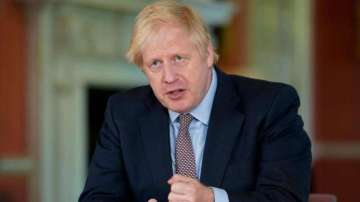Prime Minister Boris Johnson on Wednesday said the COVID-19 variant first detected in India was of “increasing concern” in the UK and the country's health authorities are looking at all possible solutions as its case numbers continue to rise in parts of England. During the weekly Prime Minister’s Questions (PMQs) session in the House of Commons, he was asked about the variant – named B.1.617.2 and classified as a Variant of Concern (VOC) by Public Health England (PHE) – and told Members of Parliament that it may be "considerably more transmissible" than the dominant variant in the UK first detected in the county of Kent last year.
“We must be vigilant because the threat of this virus remains real and new variants pose a potentially lethal danger, including the one first identified in India which is of increasing concern here in the UK,” said Johnson.
"We are looking at all potential solutions for the surges we are seeing in Bolton and elsewhere including that, although that is not top of the list right now," he said, in response to a question on whether people in the most affected areas of Britain could be accelerated through the vaccination queue.
The UK Prime Minister revealed there are now "860 or so" cases in England of the VOC detected in India, "but there may be more" as the variant "may be considerably more transmissible".
The variant B.1.617.2 is one of three subtypes of the variant first detected in India and was designated as a VOC by PHE last week after over 500 cases were found in parts of England. It is among a list of variants, including those first found in South Africa and Brazil, currently being monitored as VOCs in Britain.
So far, 127,890 lives have been lost and 4,455,446 people have been infected by the coronavirus in the UK, according to Johns Hopkins University.
ALSO READ: UK lowers COVID-19 alert level from ‘rising exponentially’ to ‘general circulation’
ALSO READ: US researchers develop new vaccine that blocks COVID-19, variants, other viruses
Latest World News
